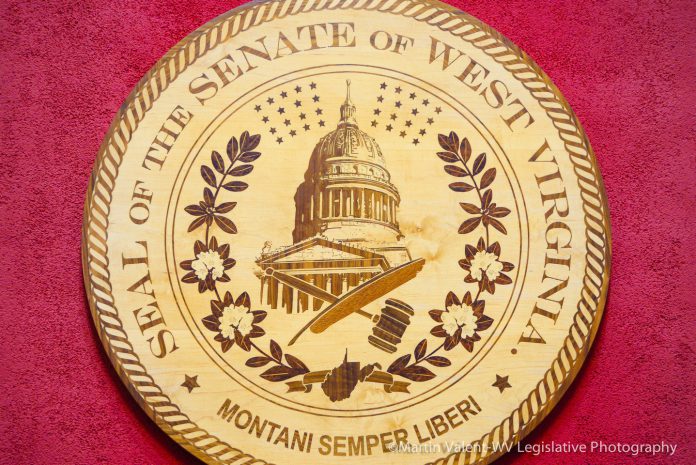As of 4 p.m., Thursday, January 23rd, 2014, the 16th day of the 2nd session of the 81st Legislature, 904 bills have been introduced in the House of Delegates. Of those, three have passed and been sent to the Senate for further consideration. Among those:
House Bill 2757 would call for the euthanizing of a dog that has either attacked twice in two years or caused $1,000 worth of damage with its attack. This would only apply if the person attacked was not at fault.
House Bill 4003 would grant dual jurisdiction to counties where a student lives in one county and attends school in another to enforce truancy policies. Either county has concurrent jurisdiction for the trial of offenses.
A sampling of bills introduced in the House:
House Bill 4191 would raise taxes and tobacco-related products. The tax on cigarettes would be raised to $1.55 on each 20 cigarettes (a “pack”) and 50 percent of the sale price of any other tobacco product. Tax money will go to the Bureau for Medical Services, and each fund or program receiving money will have to provide a report to the Legislative Oversight Commission on Health and Human Resources Accountability every three years on how funds are being used.
House Bill 4194 would adopt new rules for traffic control signals. While it would still be legal to enter an intersection on yellow light, a traffic violation would occur if the driver has not cleared the intersection by the time the light turns red.
House Bill 4199 would require a federal background check based on a name search to become a nurse after two sets of fingerprints have been rejected as unreadable.
House Bill 4209 would prevent a person from being disqualified for unemployment compensation benefits when they are out of work due to domestic violence, sexual offenses or stalking by family or household members. Claims would be evaluated and aid employees would be trained on how to interact with claimants. The claimant must seek and accept work to remain eligible. The employer would not be chargeable for benefits paid.
House Bill 4211 would permit motor vehicles belonging to drivers who have been arrested on at least four occasions of impaired driving to be seized, impounded and forfeited. If the vehicle was damaged while the driver was impaired, the Division of Motor Vehicles will notify the driver’s insurance company. Impounded vehicles may be sold under certain circumstances.
House Bill 4212 would create a methamphetamine registry and would restrict the sale of products containing ephedrine, pseudoephedrine and phenylpropanolamine. The registry would contain the person’s name, date of birth, offense, conviction date, county of those offenses, and convictions prior to the current conviction date. Prosecuting attorneys would have to submit conviction information, which would be kept on a website operated by the state police. When someone would attempt to buy products that contain the these ingredients, the pharmacy or retailer would submit a driver’s license number. If the person is registered, they would be denied the sale.
House Bill 4214 would encourage and assist those with schizophrenic reality disorder in designating a durable medical power of attorney to help the patient avoid future involuntary commitments when the patient is unstable. The chief medical officer of the mental health facility will help the patient find their attorney upon release from the facility.
House Bill 4223 would require a search warrant to perform a secondary blood test to determine the alcohol or controlled substance concentration in a driver’s blood.
House Bill 4236 would establish a state-wide system for sexual assault forensic examination services. This legislation would create the Sexual Assault Forensic Examination Commission, which would be chaired the director of the Division of Justice and Community Service. County and regional boards would have to identify facilities that are appropriate for receipt and treatment, assess and designate physicians and nurses, evaluate the needs and resources of the area to facilitate and encourage 24 hour, seven day a week coverage, provide transportation if the person is in a remote region, and create an alternative plan if there is a change in circumstances.
House Bill 4254 would provide a paid leave of absence for certain state employees that are essential members of an emergency aid provider during a state of emergency. The paid leave of absence may not be more than 15 days and the total cost among all state employees may not exceed $300,000. If passed, it will be in effect retroactive to January 1, 2014.
House Bill 4264 would provide protections for the medical use of cannabis and prohibits discrimination against those entitled to it. It would be permitted to those with a debilitating medical condition. A patient would not be permitted to have more than six ounces or twelve mature marijuana plants and twelve seedlings.
House Bill 4267 would legalize and regulate the selling of fireworks and create the West Virginia Veterans Program Fund. There would be a 10 percent tax on the fireworks, with the proceeds going toward the Veterans Program Fund.

